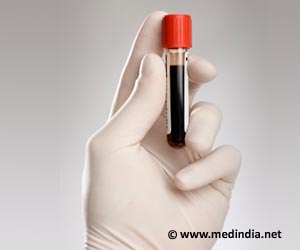New research says that celiac disease patients who experience chronic damage in the small intestine may be more likely to break a hip than those whose intestinal tissues have begun healing.

"We believe that giving the mucous membrane-the moist tissue lining the small intestine-a chance to heal can lower the risk of complications, including bone fractures, in celiac patients," said one of the study''s authors, Jonas F. Ludvigsson, PhD, MD, of Karolinska University Hospital and Karolinska Institute in Stockholm, Sweden. "Our research confirmed that patients had a higher rate of hip fractures when tissue damage persisted over time. Sticking to a gluten-free diet is crucial for minimizing tissue damage and reducing the risk of a serious fracture that could cause other complications."
The cohort study analyzed tissue samples from 7,146 Swedes who were diagnosed with celiac disease from July 1969 to February 2008 and received follow-up biopsies within five years of diagnosis. Researchers examined intestinal tissue from the biopsies to determine the level of damage. Among this population, 43 percent had persistent villous atrophy where the intestinal tissue did not heal. (The villi are tiny structures that project from the lining of the small intestine.)
Researchers analyzed patient records to determine how many had broken bones. Patients were monitored for a median of 10.3 years after being diagnosed with celiac disease. The study found that people who had persistent tissue damage were more likely to break a hip. All patients faced a similar risk close to the time of the follow-up biopsy. The group with persistent tissue damage had a heightened risk of hip fracture beginning five years after the follow-up biopsy, indicating a higher long-term risk.
"Physicians have debated whether people with celiac disease actually benefit from a follow-up biopsy to determine the level of tissue healing taking place," said one of the study''s authors, Benjamin Lebwohl, MD, MS, of the Celiac Disease Center at Columbia University Medical Center in New York. "These findings suggest that a follow-up biopsy can be useful for predicting complications down the road."
Other authors of the study include: K. Michaëlsson of Uppsala University in Uppsala, Sweden, and P.H.R. Green of Columbia University Medical Center.
Advertisement
Founded in 1916, the Endocrine Society is the world''s oldest, largest and most active organization devoted to research on hormones and the clinical practice of endocrinology. Today, the Endocrine Society''s membership consists of over 17,000 scientists, physicians, educators, nurses and students in more than 100 countries. Society members represent all basic, applied and clinical interests in endocrinology. The Endocrine Society is based in Chevy Chase, Maryland. To learn more about the Society and the field of endocrinology, visit our site at www.endocrine.org. Follow us on Twitter at /twitter.com/#!/EndoMedia"
Advertisement
Source-Newswise










